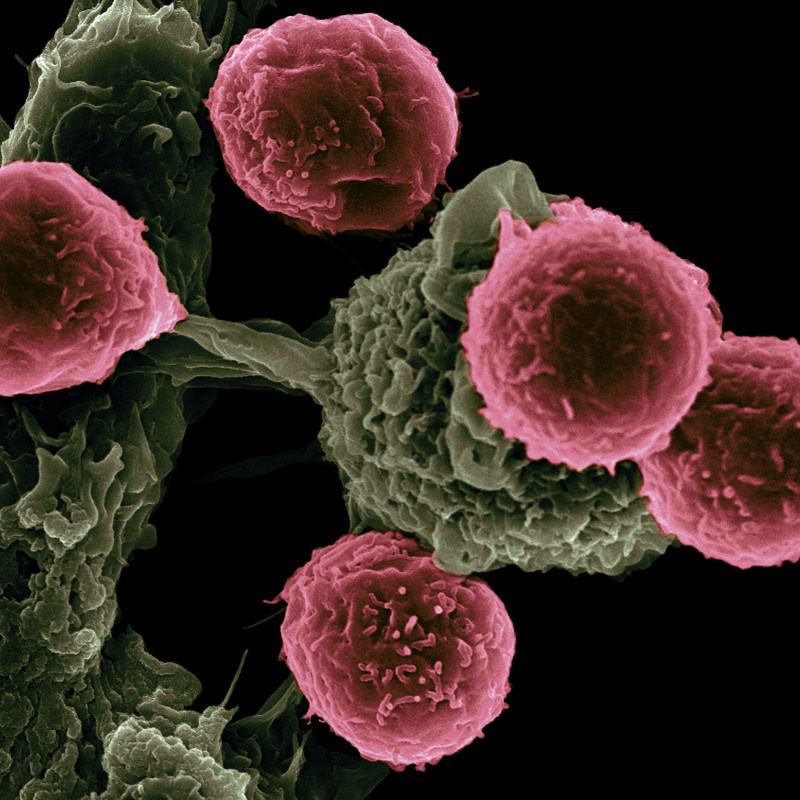Abata Opens With Plans to Develop T-cell Therapies for Progressive MS

Abata Therapeutics has opened with $95 million in financing, and plans to use regulatory T-cells to treat autoimmune and inflammatory diseases, starting with progressive forms of multiple sclerosis (MS).
Money raised will be used to support work for three clinical trials it plans to initiate in 2025, including one in primary progressive (PPMS) and nonactive secondary progressive (SPMS) patients.
“Our initial and urgent focus is on patients living with non-relapsing progressive MS, which remains untreatable, despite exciting advances for relapsing forms of the disease,” Richard Ransohoff, MD, co-founder and chief medical officer at Abata, and a venture partner at Third Rock Ventures, said in a press release.
“The time for Tregs is now, and we are emboldened in our approach to halt the progression of this debilitating disease and others like it,” he added.
Regulatory T-cells, also referred to as Tregs, are a type of immune cell that prevents other immune cells from attacking the body’s own tissues. As such, they are considered ideal candidates to treat autoimmune disease, restore homeostasis — a state of steady equilibrium in the body — and promote repair in affected tissues.
T-cells have receptors on their surface that allow them to sense and respond to specific antigens, or molecules that trigger an immune response. In MS, disease-causing T-cells target antigens of myelin, damaging this nerve-protecting sheath.
However, researchers can tinker with Treg receptors so that they travel to sites where an autoimmune response has been triggered, preventing other immune cells from doing damage. By selectively targeting the site of disease, Abata hopes to halt its autoimmune reactions without suppressing the entire immune system.
The Tregs used by the company are autologous, meaning they are obtained directly from a patient, minimizing the risk of rejection once engineered cells are returned to the patient.
According to Abata, the engineered cells are expected to remain in tissues for long periods of time, which may allow the effects of a single dose to last for years, and potentially lifelong.
“Millions of people worldwide suffer from autoimmune diseases, and the majority of patients, including those with progressive MS, have inadequate or no therapeutic options,” said Samantha Singer, MS, MBA, Abata’s president and chief executive officer.
“The ideal treatment for autoimmune disease would be active only at the site of disease, counteract the full range of complex inflammatory mechanisms, promote tissue recovery and last for years,” Singer added. “This is a Treg’s native role in the immune system. At Abata, we’re harnessing Tregs as targeted therapies to alter the course of serious autoimmune disease and succeed where others have failed.”
To accelerate treatment development, Abata announced that it entered into an exclusive partnership with ElevateBio. These companies will use a proprietary process to isolate, engineer, and expand mature Tregs derived from the thymus — an immune system organ that makes T-cells. Thymic Tregs are thought to be resistant to pro-inflammatory triggers.
“Abata is the culmination of a three-plus-year effort by the company’s scientific founders and the team at Third Rock Ventures to interrogate the potential for a Treg cell therapy,” said Abbie Celniker, PhD, executive chairman of Abata’s board of directors and a partner at Third Rock Ventures.
“Identifying our first programs meant fully understanding where disease pathology and Treg biology intersect to make the biggest impact for patients, and the first clear answer is progressive MS,” Celniker added.
The proposed MS trial will enroll PPMS and nonactive SPMS patients with evidence of inflammatory lesions on MRI scans. Pending positive results, the company expects to expand testing to all with progressive MS, including patients who experience relapses.
In addition to MS, Abata is also planning to advance Treg products for type 1 diabetes and inclusion body myositis, a disease caused by inflammation in the muscles.
Investors in this Series A financing round were ElevateBio, Lightspeed Venture Partners, Invus, Samsara BioCapital, and the JDRF T1D Fund. Third Rock Ventures led the round.






